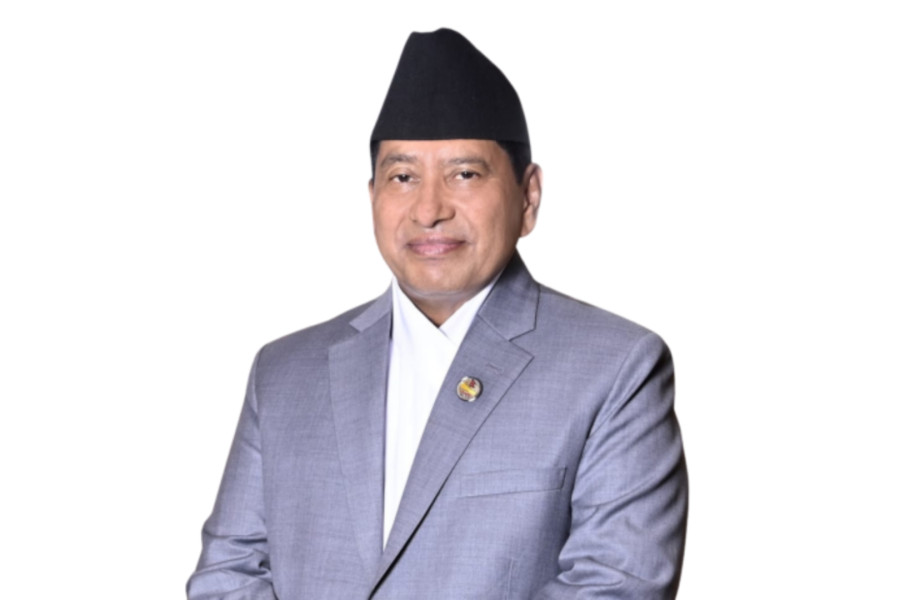National
Russia may terminate contracts of Nepalis serving in its army
DPM Shrestha says Russian foreign ministry has agreed in principle to end contracts of those wishing to return home.
Post Report
Deputy Prime Minister and Minister for Foreign Affairs Narayan Kaji Shrestha has claimed that Russia has in principle agreed to terminate the contracts of Nepali citizens currently serving in the Russian Army. “For this, we have yet to fix the modality and the Nepali Embassy in Russia is working out such modality in coordination with the Russian authorities,” Shrestha said while addressing the House of Representatives on Monday.
The government is facing a daunting challenge to return its citizens from the Russian Army as over 600 Nepalis are estimated to be serving in the Russian Army as mercenaries in the ongoing war against Ukraine.
Actual number of Nepalis could be higher, according to officials.
Despite Nepal’s repeated requests, the Russian side has not disclosed how many Nepalis are serving in the Russian Army, and how many are dead or injured.
“The Russian foreign ministry in principle has agreed to terminate the contracts of Nepali nationals who want to come back,” said Shrestha.
Recently, Shrestha had a telephone conversation with his Russian counterpart, Sergey Lavrov, and discussed the issue of recruitment of Nepali citizens in the Russian forces without the knowledge of Nepal government, compensation for those killed while serving in the Russian Army and termination of contract for Nepalis who wish to return, among other issues. Shrestha said that the process has begun to provide compensation to the family members of the Nepali citizens killed in the war between Russia and Ukraine.
The Nepal government does not permit its citizens to serve in armies except for those of India and the United Kingdom.
“During our correspondence with Russian authorities and in my discussion with the Russian foreign minister, we have urged them not to recruit Nepali nationals into the Russian army and terminate the contracts of those individuals who are currently serving in their forces,” Shrestha said.
He said that the Nepal government has also urged the Russian side to promptly provide compensation and insurance amounts, and repatriate the dead bodies as quickly as possible.
“I spoke to the Russian foreign minister over the phone. I also had a meeting with the Russian ambassador. During these conversations, I urged them not to recruit Nepali nationals into their army, terminate the contracts of Nepalis serving in the Russian Army and send them back to Nepal, provide compensation to the families of those who died in the war, and send the dead bodies back so that their family members can perform the funeral rites as per the tradition,” he said.
As many as 21 Nepalis have been killed in the Russian Army and over 100 Nepalis nationals have been injured and are currently undergoing treatment in different hospitals in Russia. Shrestha also informed that Russia has started providing compensation to Nepali nationals.
He also pointed out the need for broader national consensus on the issue of foreign policy and diplomacy.
Shrestha also vowed to rigorously enforce the diplomatic code of conduct that was first introduced in 2011 during his tenure as foreign minister. However, successive governments failed to enforce it later on.
“We are going to take a bold step in implementing the diplomatic code of conduct,” he added. “We should have a broader consensus on foreign relations and diplomacy, therefore we need an effective diplomatic code of conduct.”
He urged the party leaders, parliamentarians, elected representatives to keep national interest at the core while being engaged in foreign relations and diplomacy. “While keeping national interest at the core we should be careful of others imposing their own agendas. Our independence, sovereignty and territorial integrity given to us by our ancestors could face serious challenges. So on the issue of foreign relations, its policy and conducting diplomacy, we should have a common voice and national consensus," said Shrestha.
He also stated that Nepal always maintains good relations with India, China and other countries, and the trajectory of bilateral relations with India and China is upward.
“If someone prioritises the interests and influences of others while conducting foreign relations, it will add challenges to our sovereignty,” said Shrestha emphasising the government’s seriousness about such issues.
“As a foreign minister of this country, I assure you that I will work without bias, prioritising national interest as our overarching goal. We will conduct foreign policy based on the changing global context, geopolitical location of Nepal, and associated challenges. We will pursue an independent foreign policy.”




 16.12°C Kathmandu
16.12°C Kathmandu














